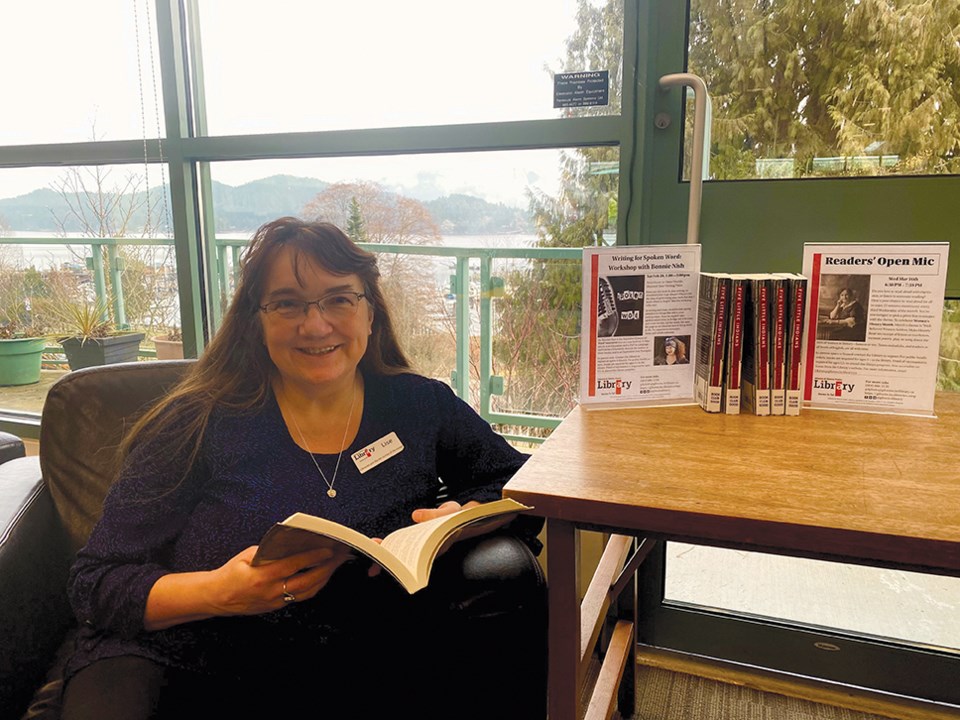The Gibsons Public Library’s initiative to promote public readings turned to one of literary history’s most turbid chapters during a gathering on Feb. 16—the subject of banned and challenged books.
The library’s Community Reading Series began in January, the communal brainchild of outreach coordinator Lise Kreps and library volunteer Johanna Rzepa.
Its inaugural monthly session included prose and poetry on the theme of winter. To mark Freedom to Read Week, which runs from Feb.20 to 26, the latest event raised the temperature by inviting readings from books that have been deemed too incendiary for mass consumption.
A half-dozen adult readers took part in person and via a streaming video connection, reading aloud five-minute extracts of published works that included Bronwen Hughes’s Harriet the Spy, J.K. Rowling’s Harry Potter stories, and Walt Whitman’s Leaves of Grass.
In libraries and bookshops around the world, those books—and novels like The Catcher in the Rye and Huckleberry Finn—have been pulled from shelves over the last century due to perceived salacious or seditious content. George Orwell’s dystopian 1984 bears the distinction of being the most-frequently banned book in America.
“It is true that given time and enough breadth in a collection, something there will be really offensive to pretty much everybody,” said Kreps. “But you know, that is what we’re here for. We’re here to represent all different points of view. And we do reconsider things over time too.”
Kreps recently learned that one her favourite childhood series—the Pippi Longstocking novellas by Swedish author Astrid Lindgren—has been called offensive because of outdated references to people of colour. But she believes there is a more constructive alternative to outright shunning of such publications.
“With my own child, I used C.S. Lewis’s The Horse and His Boy—which is highly racist in many ways—as an opportunity to discuss how it’s racist and how attitudes have changed. Each parent can do that or not as they see fit. That’s what’s beautiful about the freedom to read: you can read it or not. It’s up to you.”
Johanna Rzepa, who worked with Kreps to author the library’s Community Reading Program, sharpened her own appetite for public reading through a local Toastmasters club. She exercised those skills as a performer at the Sunshine Coast Festival of the Performing Arts, and wanted to give others the opportunity to find their voice.
“I see that the readers love literature, which is wonderful,” she said. “I think even performing artists, like pianists who have to stand up and say who wrote the piece and something about it, would really benefit. Reading is a performance, after all. Just getting up [to read] makes you feel more confident.”
Kreps is planning another evening of community reading in March, which will spotlight works in support of International Women’s Day. A readers’ version of Shakespeare’s Midsummer Night’s Dream is being prepared for June. The library also offers a monthly open mic night to writers keen to read their own compositions aloud.
Freedom to Read Week is organized nationally by Canada’s Book and Periodical Council. It was conceived in 1985 in response to objections raised by Ontario schools over Margaret Laurence’s novel The Diviners.



